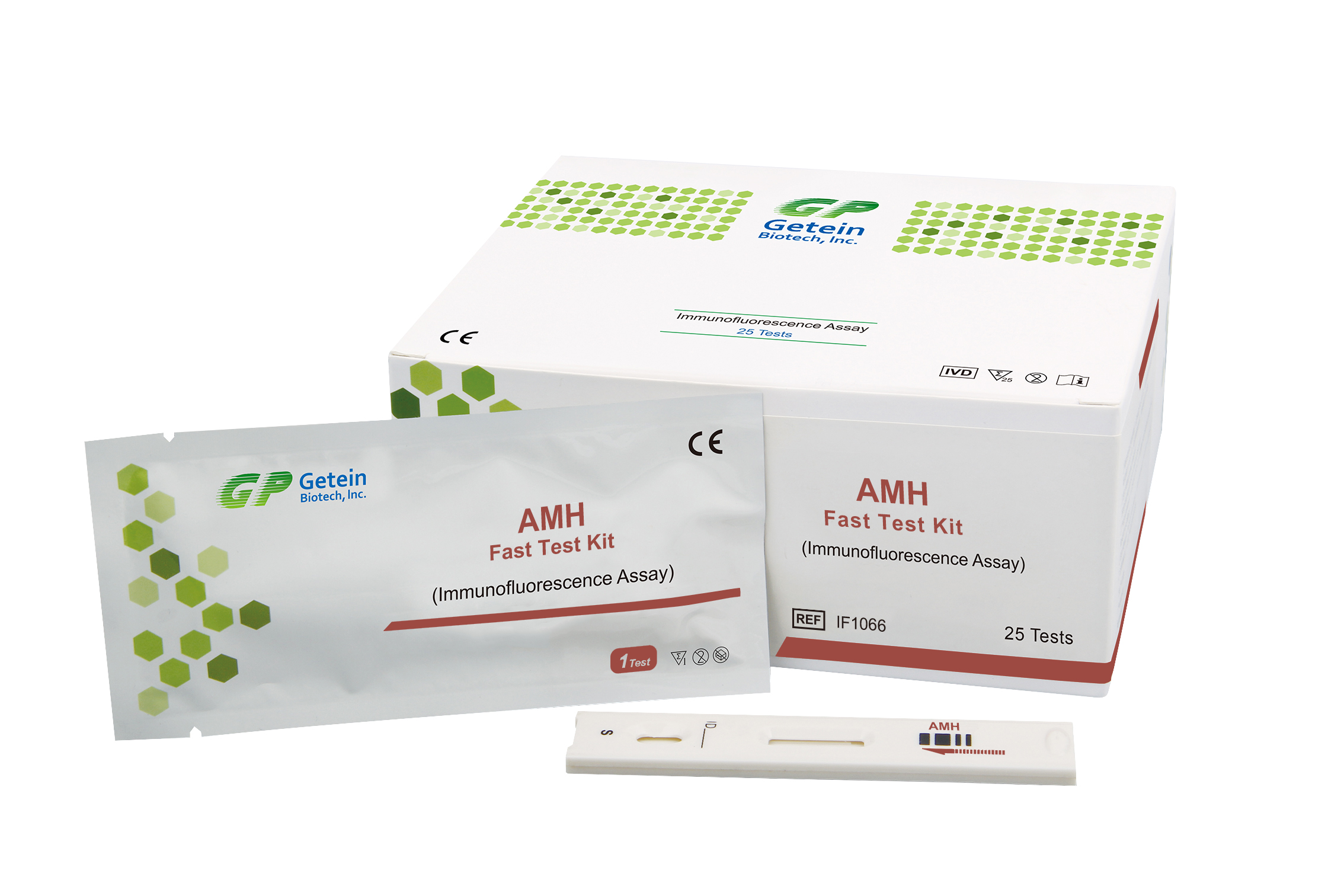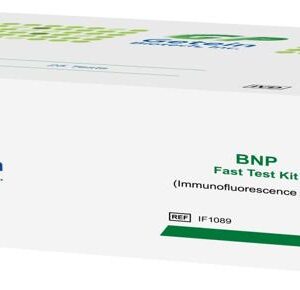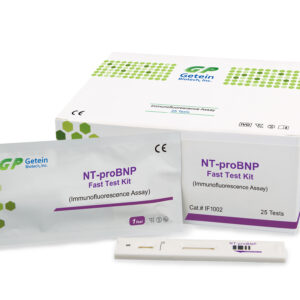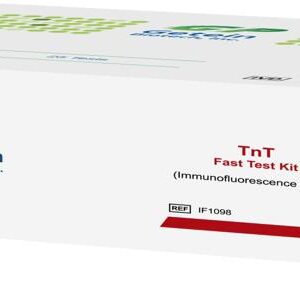Description
Anti-Mullerian hormone (AMH), also called Mullerian inhibiting substance (MIS), is a homodimeric glycoprotein from the TGF-B family. It plays a major role in cell growth and differentiation. AMH molecular weight is 140 kDa.
AMH plays a role in gender differentiation during embryo development. Under the influence of AMH secreted by Sertoli cells of the embryonic testis, the Müllerian ducts regress in male fetuses, which leads to the normal development of male genitals.
The absence of AMH allows the Müllerian ducts to further develop, resulting in the internal female genital organs.
AMH is a marker for ovarian functional reserve because it is formed only by the primary follicles, which are capable of maturation, and the secondary follicles.
In women over 30 and particularly those over 35 years of age, AMH can be used as a screening test to assess fertility status. Elevated AMH concentrations are measured in the serum of patients with PCOS (polycys-tic ovary syndrome), and the concentration is also greatly increased in anovulatory cycles. Besides, the AMH level falls continuously with inreasing age, corresponding to the loss of ovarian functional reserve.
In males, the determination of AMH may be useful in the investigation of gonadal function, the differential diagnosis of intersexuality and cryptorchidism/anorchism and the diagnosis of precocious/late puberty. AMH can be used to detect the presence of testes in cryptorchidic boys.





